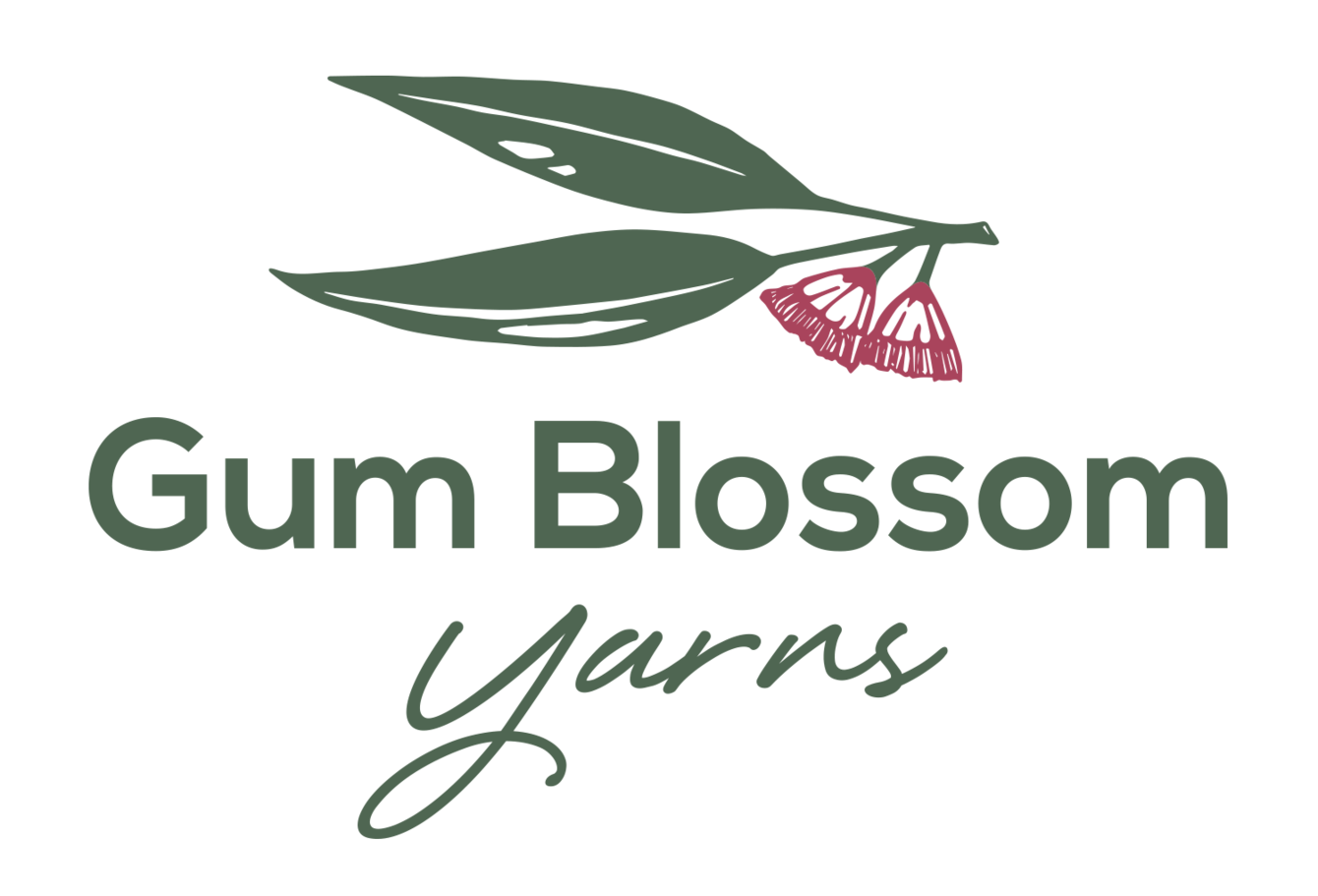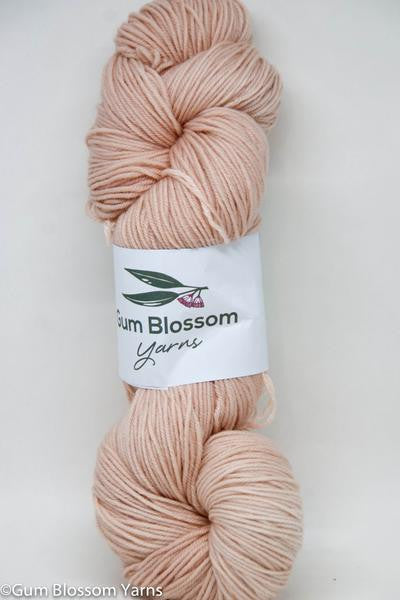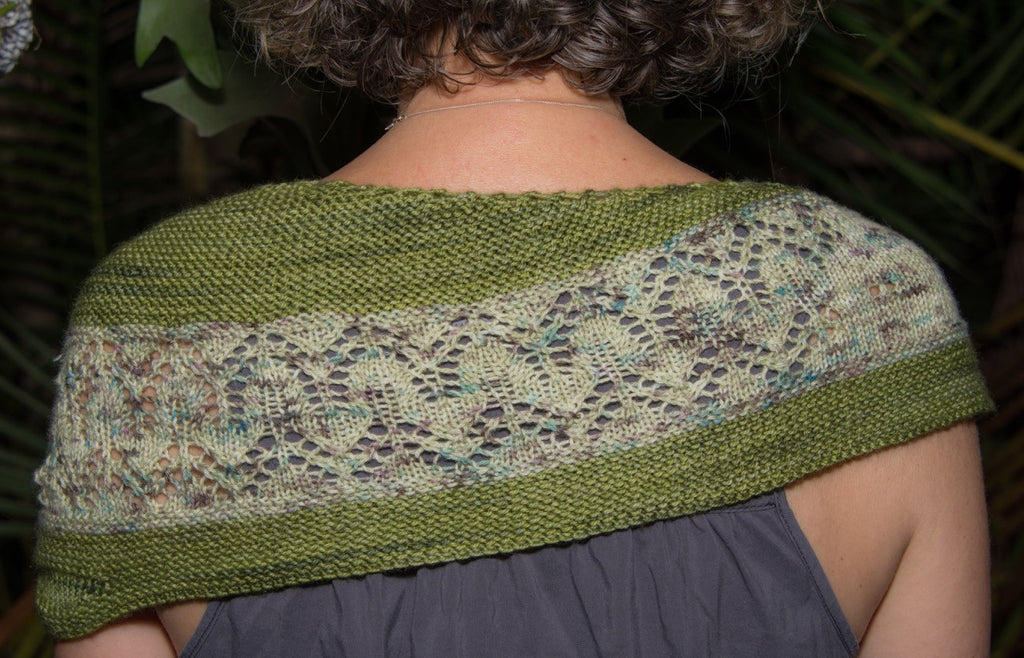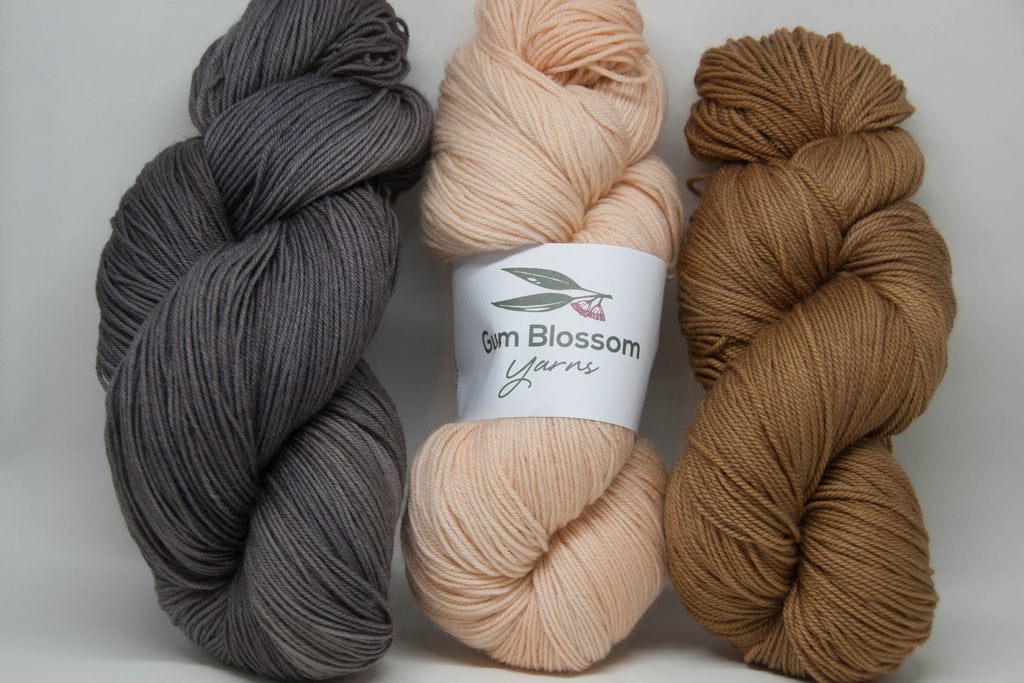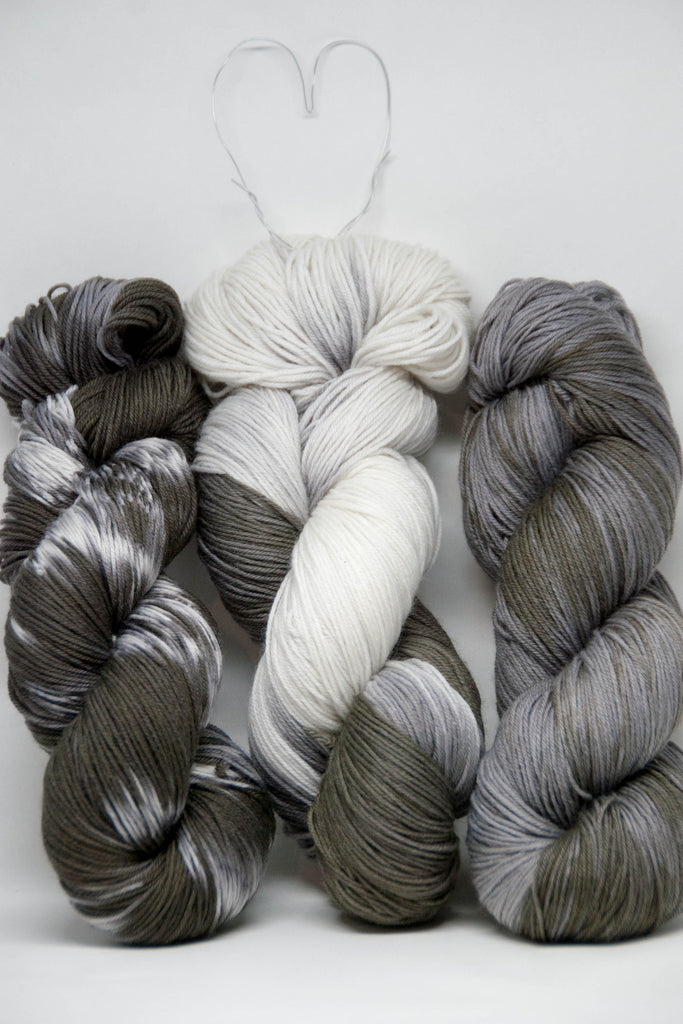News
Foraging for colour 8: Gum Blossom
Simone Cross
I had no idea. It was getting frustrating not getting the usual pink from my avocado seeds - instead It was light peach in colour. It was summer and really hot and dry, and the water tasted funny. Hmm. Could it be that the pH of my water had changed (more chlorine for the bugs perhaps)? Was it something I did wrong? All my plant extract colours started 'acting up'. Like when you have children, you think it's all sorted and then life changes! Time to go back to basics- back to testing everything, like in the lab. I tested...
Free Consultation
Simone Cross Colourways Combinations Complimentary Consult
Need to see what colour ways would suit your next KAL, CAL or MKAL? Like to see a picture together of complementing yarn combinations? Ask for a free consult! I can photograph combinations of three yarns or more and send you mobile phone pictures to help your yarn decision! I will also send you a monochrome photo so you can choose a light, mid- and dark colour way combination that will enhance your project and give it that zing! Its free! just ask for a consult and provide answers to these questions: How many skeins do I need? For what pattern/piece...
Mulberry, Bush Olive and Chestnut
Simone Cross Store updates
It's silkworm time! All the mulberry trees are covered with huge green leaves, and the very hungry silk worms chew through them, growing fatter as spring rain helps everything grow. Interestingly, there are two types of mulberry: the black-purple (Black English) and the white berry (Shahtoot). The yarn dyed with the Shahtoot mulberry leaf is a lovely Spring green colour. I tripped over some large hard shell cases of the Moreton Bay Chestnut aka the Queensland Black Bean. These large brown-shelled "nuts" are extremely toxic to humans and animals but cleverly, indigenous peoples turn these into a food source after...
Shibori Yarns
Simone Cross
Foraging for Colour 4: Blood Oranges
Michael Cross #gumblossomyarns #blog #bloodoranges
Winter is waning and Spring is racing towards us with un-seasonably warm daytime temps and lovely cool nights. Daughter of Eve (fruit/veg guru) alerted me to the finger-staining abilities of blood oranges - now in season in Australia. The high citric acid in these oranges means they have a natural ability to bind to wool yarn. The colours were just amazing - check the shop to see how it dyed up. And the Golden Penda (not panda) flowers are really big this year. Coming from the frostier Southern countryside, these trees are everywhere in northern Australia and look as if from another...
